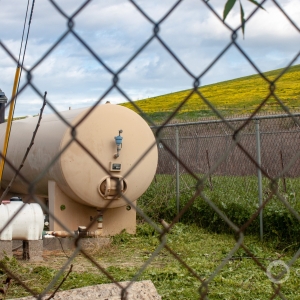The Stream, April 13, 2021: New Study Outlines Dengue Risk in Brazil’s Wet, Dry Seasons
YOUR GLOBAL RUNDOWN
- A new study finds that wet conditions and extreme drought can increase the risk of dengue in Brazil.
- Massachusetts officials are urging residents to conserve water as drought worsens throughout the state.
- The Japanese government will release over one million tons of radioactive water into the Pacific Ocean.
- A hearing will be held Friday to determine if the Dakota Access oil pipeline can continue operating without a key federal permit.
A former utility worker in Kansas is charged with tampering with a rural district’s water system.
“When the individual is terminated, for example, from a job, you want to make sure you remove their credentialed access from these systems.” – Marty Edwards, and expert on critical infrastructure at the cybersecurity firm Tenable. A former utility worker in Kansas has been charged with remotely accessing the Post Rock Rural Water District’s systems and shutting down the facility’s cleaning and disinfecting procedures. The hack occurred in March of 2019, about two months after the worker quit his job at the utility. The Associated Press reports that the incident underscores the risk smaller utilities face against such attacks.
- Why it matters: Hacking threats against America’s water systems are real, Circle of Blue reported in 2016. The opportunities for malicious activity are increasing. More and more water utilities, in order to save money by remote monitoring, are connecting their control systems to the internet. Meanwhile, hackers are developing computer viruses capable not only of stealing data, but also taking control of critical infrastructure.
IN RECENT WATER NEWS
In Case You Missed It:
HotSpots H2O: New Research Finds National Reform Vital for Jordan’s Worsening Water Crisis – Nearly all of Jordan’s lower-income populations will suffer from severe water insecurity by the end of the century without immediate and comprehensive national reform, according to a Stanford University study.
What’s Up With Water – April 12, 2021 – This week’s episode covers widespread water restrictions in Taiwan, California officials who are bracing for a dry summer, and a lawsuit filed by Alaska officials against major chemical companies over alleged groundwater contamination.
Massachusetts Officials Urge Conservation As Drought Conditions Persist
The Massachusetts Executive Office of Energy and Environmental Affairs announced Friday that the southeast region of the state is experiencing significant drought. The Associated Press reports that the drought conditions have prompted officials to urge Massachusetts residents to conserve water.
TODAY’S TOP WATER STORIES, TOLD IN NUMBERS
1.24 MILLION TONS
The Japanese government has opted to release 1.24 million tons of radioactive water from the wrecked Fukushima nuclear plant into the Pacific Ocean, the Associated Press reports. The decision, which has been widely expected, comes after years of delay due to protests and safety concerns.
3 TO 5 MONTHS
A new study in Lancet Planetary Health found that after extreme drought, dengue risk in highly populated areas of Brazil is exacerbated for three to five months due to improvised water containers housing mosquitoes. The study also found that the risk of dengue increased in rural areas during periods of extreme rainfall.
ON THE RADAR
On Friday, a U.S. federal court will determine if the Dakota Access oil pipeline should be allowed to continue operating without a key permit from the Army Corps of Engineers, Al Jazeera reports. In April of last year, U.S. District Judge James Boasberg ordered further environmental study after ruling the Army Corps had not thoroughly considered how an oil spill under the Missouri River might disproportionately affect the Standing Rock Sioux Reservation. Now, Boasberg is asking the Corps to explain how it “expects to proceed” without a federal permit granting easement for the pipeline as an environmental review of the project is conducted.
- Why it matters: The longstanding campaign by activists, Indigenous tribes and U.S. politicians to halt the Dakota Access pipeline is motivated by dimensions of history, law, human rights, justice, finance and climate change. What started as a call to action to join the Standing Rock Sioux Tribe in preventing the project from threatening a primary source of freshwater has grown into a public interest campaign with powerful implications for energy development, the environment, and the rule of law.
Jane is a Communications Associate for Circle of Blue. She writes The Stream and has covered domestic and international water issues for Circle of Blue. She is a recent graduate of Grand Valley State University, where she studied Multimedia Journalism and Women, Gender and Sexuality Studies. During her time at Grand Valley, she was the host of the Community Service Learning Center podcast Be the Change. Currently based in Grand Rapids, Michigan, Jane enjoys listening to music, reading and spending time outdoors.






Leave a Reply
Want to join the discussion?Feel free to contribute!